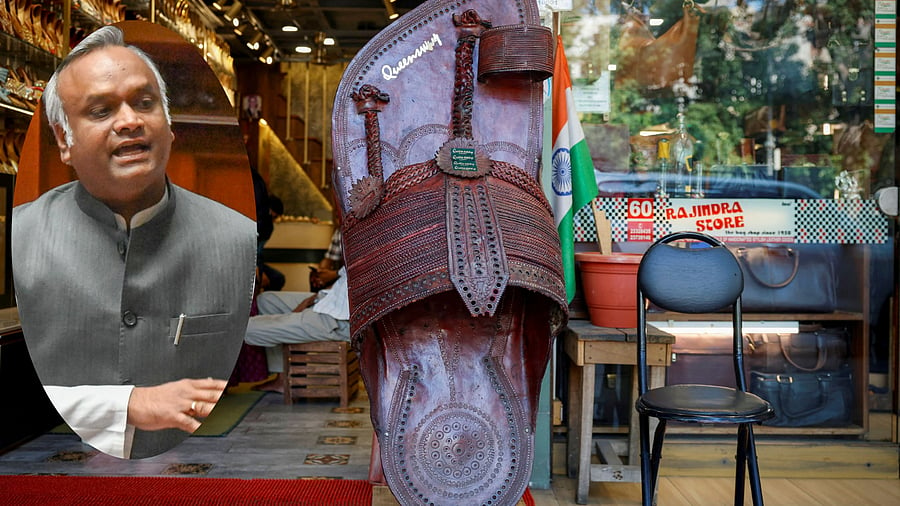
A Kolhapuri chappal. (Inset: Karnataka minister Priyank Kharge).
Credit: PTI, DH Photos
The Prada Kolhapuri chappal controversy that has grabbed headlines across the country has thrown open the gates to another detail: the involvement of Karnataka artisans in making them and the GI tags granted to four districts each in Maharashtra and Karnataka.
In a post on social media platform 'X', Karnataka Minister Priyank Kharge has highlighted that the contributions of Karnataka artisans in this regard should not be neglected.
Taking to 'X' on Sunday, he said that few people know that a large number of the artisans who make these iconic chappals actually live in Karnataka's Athani, Nippani, Chikkodi, Raibag, and other parts of Belagavi, Bagalkot, and Dharwad.
"They've been making these chappals for generations, selling them in nearby towns, especially Kolhapur, which became the default market and over time, the brand," he said.
Kharge recalled how, when he was the Social Welfare Minister, they saw Maharashtra pushing for sole GI tag rights over Kolhapuris.
"Through Dr. Babu Jagjivan Ram Leather Industries Development Corporation Ltd (LIDKAR), a state-owned establishment that sells leather products, we contested this and fought to ensure Karnataka's artisans were not left out. I'm proud to say we succeeded. The GI tag was finally granted jointly to four districts each in Karnataka and Maharashtra. This was never about a contest between the two states but about preserving our shared heritage and giving our artisans the legal recognition they deserve," he said.
The Minister expressed that this Prada episode is a reminder that the GI tag recognition alone isn't enough and stressed the importance of Cultural entrepreneurship.
"We need to invest in skilling, branding, design innovation, and global market access for these artisans. They don't just deserve credit, they deserve better prices, wider exposure, and the chance to build lasting, dignified livelihoods from their craft," he said.
When international fashion houses adopt our designs, the names, work, and legacy of our artisans should be showcased, not sidelined, said Priyank Kharge.
"The GI tag only gives them legal rights. It's now our responsibility to give them global platforms," he added.
(With PTI inputs)
